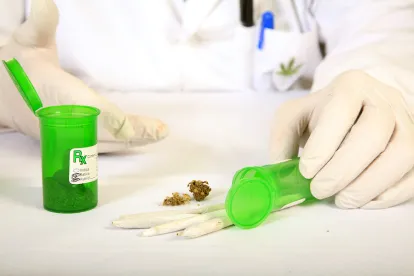A federal court in Michigan dismissed the age discrimination claim of a licensed medical marijuana caregiver who was terminated in connection with an investigation into drug activity at work. Henry v. Outback Steakhouse of Fla., LLC, No. 15-cv-10755 (E.D. Mich. April 18, 2017).
Medical marijuana is legal in Michigan, but the drug still is illegal under federal law and employers may implement drug policies which prohibit the use or possession of drugs on their premises. Outback Steakhouse has such a policy. Specifically, Outback’s Employee Handbook states, “the illegal use, sale, or possession of narcotics, drugs or controlled substances while on the job or on Company property is strictly prohibited and is a dischargeable offense.”
After witnessing suspicious activity by four Outback employees, management began an investigation into whether drugs were being sold on company property. The Company decided to terminate four employees. Those employees were given the opportunity to meet with management and explain themselves. During those interviews, the employees stated that Bobbie Henry was selling drugs on company property to the staff and customers. Management then conducted interviews of fifteen additional employees, and two of them indicated that Henry was selling marijuana on company premises. Management took the investigation findings to Outback’s Employee Relations Manager who made the decision to terminate Henry’s employment.
At the time of her termination, Henry was 48 years old and had worked as a bartender and server for Outback for seventeen years. She also held a license, under Michigan’s medical marijuana act, to act as a medical marijuana caregiver and sell the drug to patients. When confronted with the allegations, Henry admitted that she had sold marijuana to another Outback employee who was her “patient,” but denied that she had ever sold him marijuana on company property.
Henry subsequently brought an age discrimination claim against Outback. While it was questionable that Henry had established a prima facie case of age discrimination given that the four other employees who were terminated for the same conduct were younger than Henry, the court ultimately held that Henry could not show that Outback’s stated reason for her termination was a pretext for age discrimination. Applying the business judgment rule, the court determined that Outback had established that it had an honest belief that Henry was violating company policy by selling marijuana on company property, and therefore, had established a legitimate, non-discriminatory reason for her termination.
The takeaway for employers is that although medical marijuana may be legal in the state in which they conduct business, employers still have the right to implement and enforce drug policies which prevent the use, possession or sale of drugs on employer premises.




 />i
/>i
